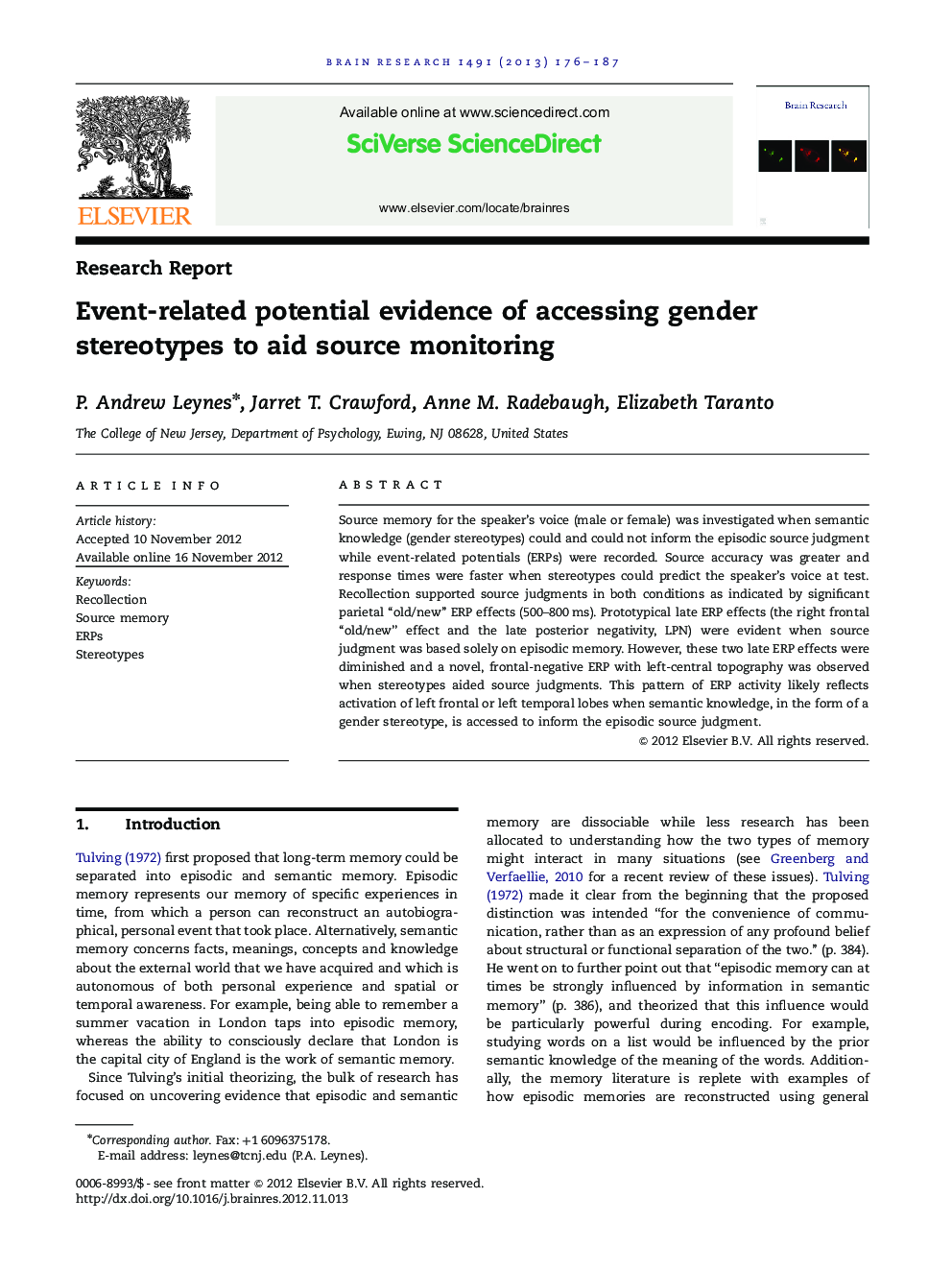| Article ID | Journal | Published Year | Pages | File Type |
|---|---|---|---|---|
| 6264032 | Brain Research | 2013 | 12 Pages |
Source memory for the speaker's voice (male or female) was investigated when semantic knowledge (gender stereotypes) could and could not inform the episodic source judgment while event-related potentials (ERPs) were recorded. Source accuracy was greater and response times were faster when stereotypes could predict the speaker's voice at test. Recollection supported source judgments in both conditions as indicated by significant parietal “old/new” ERP effects (500-800Â ms). Prototypical late ERP effects (the right frontal “old/new” effect and the late posterior negativity, LPN) were evident when source judgment was based solely on episodic memory. However, these two late ERP effects were diminished and a novel, frontal-negative ERP with left-central topography was observed when stereotypes aided source judgments. This pattern of ERP activity likely reflects activation of left frontal or left temporal lobes when semantic knowledge, in the form of a gender stereotype, is accessed to inform the episodic source judgment.
⺠The effect of gender stereotypes on source judgments was examined. ⺠Gender consistent lists promoted better source identification. ⺠Recollection did not differ but late ERP effects varied when stereotypes were used. ⺠The evidence suggests stereotypes can aid episodic memory via conscious processing.
